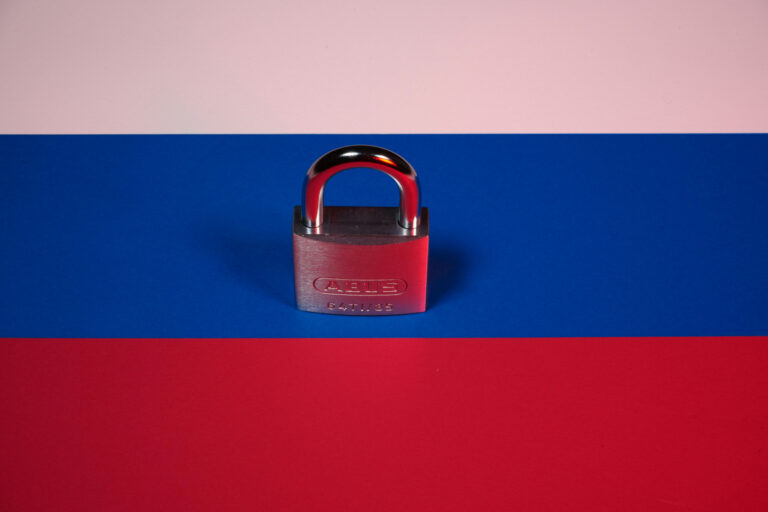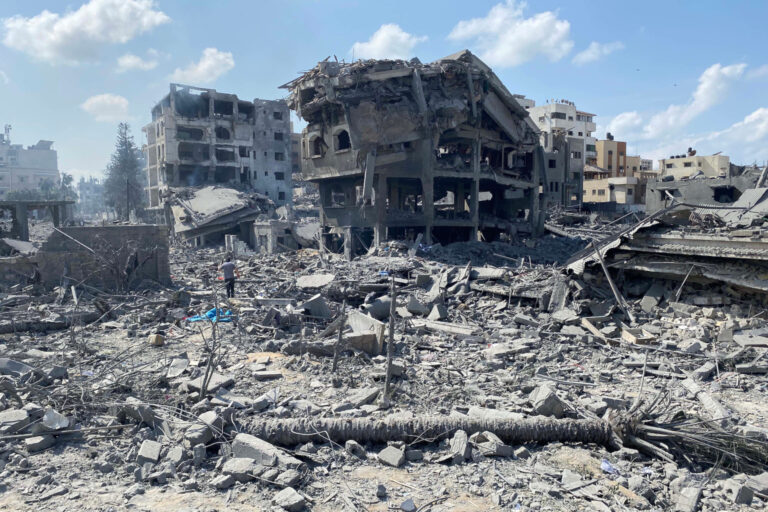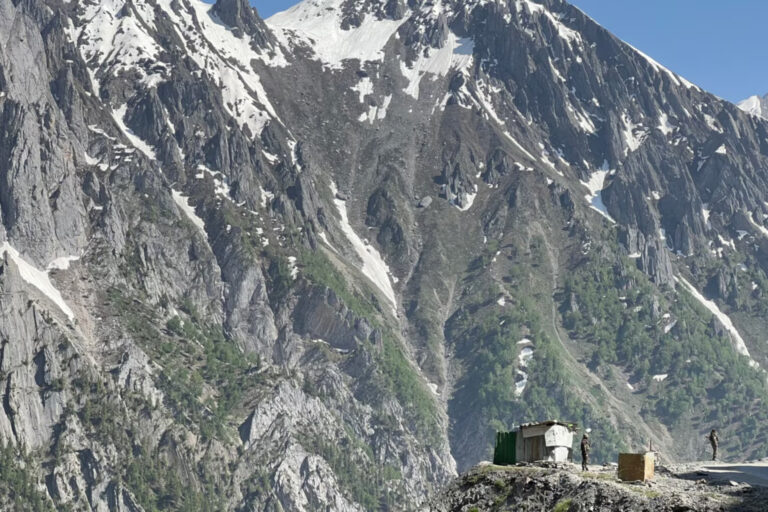Dr. Andris Banka earned his doctorate at the University of Birmingham, UK. He also holds advanced degrees in international relations from the United States (Florida), the Netherlands and Latvia. His research interests are primarily related to US foreign policy and the security of the Baltic region.
For seven decades, the United States has prided itself in being a reliable and committed NATO partner, willing to protect all allies at all times.[1] Today such assurances no longer appear rock-solid.[2] Washington has become the source of disruption and contributor to instability. While this concerns every NATO member, it is particularly alarming to nations located on Russia’s frontier: Latvia, Lithuania, and Estonia. Donald Trump’s repeated questioning of the transatlantic alliance and propensity to cast longstanding treaty allies as enemies has made the Baltic countries feel increasingly uneasy.[3]
In this context, one is reminded of Czech-born writer Milan Kundera’s insightful words regarding the fate of small countries: “What distinguishes the small nations from the large is not the quantitative criterion of the number of their inhabitants; it is something deeper: for them their existence is not a self-evident certainty but always a question, a wager, a risk.”[4]
But just as the United States sows doubt about its international treaty obligations, middle powers such as Canada, Germany, and the United Kingdom have banded together to bolster NATO’s eastern flank. Canada’s role in Latvia, where it leads a multinational battle-group, is a particularly noteworthy case that sheds light on how a well-intentioned middle power can play an outsized role far away from its own shores.[5] In Latvia, Canada’s return to Europe was welcomed with open arms and wide smiles – or as Latvian prime minister put it, it is “the perfect gift” for a nation marking its centennial this year.[6]
The Baltic republics of Latvia, Lithuania, and Estonia have come a long way since regaining their independence. Consider the following: in the early 90s, the only defensive strategy in case of Russian aggression was dubbed the “CNN defense” – locals would plan to grab a camera and simply pray for help from the West spurred by media coverage.[7] Fast forward to today and the geostrategic canvass here is quite different. In a Cinderella-like story, these nations moved swiftly from fragile republics with Soviet Red Army troops still on their soil to full-fledged members of the world’s strongest military bloc, NATO. The Baltic region now is layered with Article 5 security guarantees.
Still, because of the overwhelming Russian military supremacy in the region, the security of these nations hinges on NATO partners’ willingness to fight by their side and ability to credibly convey such a message to Moscow. For almost seven decades, such credibility – a crucial commodity of NATO – was unambiguously provided by the United States. When Russian forces annexed Crimea in 2014, President Barack Obama, just before the annual NATO summit, made sure to symbolically touch down in Estonia and deliver a forceful message to Moscow: “the defense of Tallinn and Riga and Vilnius is just as important as the defense of Berlin and Paris and London.”[8]
One can of course debate long and hard, as was done during the Cold War, about how willing the United States, in the worst possible scenario, would be to begin a nuclear war with Russia for the sake of these three countries comprising just around six million people. However, what we do know is that the constant reiteration of such a collective defense pledge has raised doubt in Russia’s mind that in fact Americans might end up fighting for these territories. Consequently, Moscow has not dared to cross the Baltic red line.[9] As Harvard’s Nicholas Burns pointed out in his recent testimony before the Senate Foreign Relations Committee: “NATO’s ability to deter Russia has always rested on the strength and clarity of American presidents, starting with Harry Truman.”[10]
This time around, before the NATO summit in Brussels, instead of bolstering deterrence, Donald Trump communicated to his allies via angry letters, enumerating his usual list of grievances towards them.[11] During the gathering of alliance leaders, he then threatened to withdraw the United States from NATO, an institution that for decades has been a pillar of American global engagement.[12] The result of such day-to-day chaos has been that trust in American leadership across European capitals has visibly deteriorated.[13] “We have no idea what President Trump would do in a crisis with Russia,” former Polish Foreign Minister Radek Sikorski bluntly admitted after the Helsinki Putin-Trump Summit.[14] There is, however, a silver lining for East Europeans. During Justin Trudeau’s July trip to Latvia, the first ever bilateral visit by a Canadian prime minister, he officially extended Ottawa’s mission there. Canada assumed the leading framework nation role in Latvia in 2016.[15] Working in concert with other NATO countries, the key objective of the mission,[16] entitled enhanced forward presence (eFP), is to deter the Russian Federation from potential aggression in the Baltics.[17] Germany has assumed a similar role in Lithuania and the UK in Estonia. While visiting Canadian troops in Latvia, Trudeau offered a starkly different vision than that of Trump’s America: “I want to be clear: we are absolutely committed to the protection of our allies and global peace and security.”[18]
Canada, of course, is no match for America and, in the long run, will not be able to fill the shoes of a superpower. However, even second-tier powers in the right place at the right time can make an impactful contribution to international security. Kori Schake, who leads the International Institute for Strategic Studies, makes the point that what mid-size powers in the current environment can do is to buy time for liberal international order in the absence of American leadership.[19] Paul Poast, writing for the Washington Post, equally believes that surprising countries – middle-power democracies – could emerge as “the heroes of NATO.”[20]
History tells us that one need not be a major power to play a positive role in the Baltics. Two examples illustrate this. In the early 1990s, with the Soviet Union crumbling, the United States hesitated to offer immediate and full recognition to freedom-seeking Baltic nations. Later, United States officials rationalized that caution was needed in order not to provoke the Soviet Union.[21] President George H.W. Bush had publicly stated that “when history is written, nobody will remember that we took forty-eight hours more than Iceland or whoever it is” that recognized them first.[22] In the end, it was Canada and not the United States that first dared to officially accept Baltic declarations of independence. America ended up being 34th on this list.
In later years, it was the Nordic countries that played a prominent role in helping to bring the Baltics into the North Atlantic Treaty Alliance. Sweden and Finland strongly supported Baltic aspirations and advised Washington on how to better craft its Eastern European strategy.[23] When Baltic membership hung in the balance, and on the Senate floor representatives like Bernie Sanders suggested that “if we ever think of bringing the Baltic countries into NATO we ought to have our heads examined,” continuous Scandinavian support was of tremendous value.[24] The Baltics joined the transatlantic alliance in 2004. What these examples demonstrate is that when United States leadership recedes, opportunities arise for other actors to have a greater say in the region.
As the Baltics have watched the twin developments of Russia’s resurgence and Washington’s unexpected turn against traditional allies, they have been reminded about Kundera’s observations regarding the fate of small nations. Baltic sovereignty, which for the past decade seemed settled and self-evident, are once again tested by larger geopolitical forces. Against this backdrop, the fact that like-minded democratic middle powers such as Canada, Germany, and the UK have assumed leadership roles for NATO’s multinational battle-groups in Latvia, Lithuania, and Estonia is of tremendous relief to this region. That Germany will have its combat-ready troops stationed in Lithuania to guard against possible Russian misbehavior, was virtually inconceivable just a few years ago. Equally, Canada’s return to the European continent, where it stands shoulder to shoulder with local Latvian forces, is a major development. At a time when the United States seems to have lost its footing in the world, middle powers have stepped up.
Since Russia’s annexation of Crimea, NATO has bolstered its presence in the Baltic region and is in significantly better position to defend the territorial integrity of its East European members. Brussels NATO summit declaration further promises to deliver on some of the deficiencies in the in defense posture such as military mobility and speed of rapid deployment forces.[25] However, one should keep in mind that while military capability is of great importance, it alone does not deter an adversary. This effort has to be supported by words – an unambiguous and confident message conveyed to Russia about the severe consequences it would incur should it try to cross NATO’s Baltic line. In this regard, Donald Trump’s twitter feed has done a great disservice to the alliance as it constantly injects an element of uncertainty regarding Washington’s commitment to collective defense.
In the absence of the United States president’s personal leadership of NATO, middle powers should mobilize their efforts to convey a clear message of commitment to NATO’s eastern flank. Canada has already publicly announced that it is prepared to stay in Latvia “for the long term.”[26] German Chancellor Angela Merkel, in her recent visit to deployed Bundeswehr soldiers in Lithuania, displayed equal determination to protect eastern allies.[27] Efforts like these send a strong signal of solidarity among allies and lay the foundation for deterring Russia.
Footnotes
[1] See then Vice President Joe Biden’s statement in Latvia: “I want to make it absolutely clear to all the people in (the) Baltic states: we have pledged our sacred honor, the United States of America… to the NATO treaty and Article Five.” Deutsche Welle, “Biden to Baltics: don’t take Trump seriously, reaffirms US committment to NATO”, August 23, 2016, accessed August 24, 2016, https://www.dw.com/en/biden-to-baltics-dont-take-trump-seriously-reaffirms-us-committment-to-nato/a-19496087
[2] By contrast, Trump, in a New York Times interview, appeared to dismiss a foundational principle of United States national security policy, when he said if Russia attacked the Baltic states he would decide to come to their aid based on whether those countries “have fulfilled their obligations to us.” Joe Gould, “World Reacts to Trump’s Apparent Conditional Support for NATO Allies”, Defense News, July 21, 2016, accessed August 28, 2018, https://www.defensenews.com/pentagon/2016/07/21/world-reacts-to-trump-s-apparent-conditional-support-for-nato-allies/
[3] See, for example, his comments a summer 2018 rally: “Our allies in many cases were worse than our enemies.” C-Span, “President Trump Remarks at Rally in Great Falls, Montana”, July 6, 2018, accessed August 28, 2018, https://www.c-span.org/video/?c4738706/president-trump-remarks-rally-great-falls-montana
[4] Milan Kundera, The Curtain (New York: Harper Collins, 2007).
[5] Christian Leuprecht, Joel Sokolsky, and Jayson Derow, “On the Baltic Watch: The Past, Present and Future of Canada’s Commitment to NATO’s Enhanced Forward Presence in Latvia”, Macdonald-Laurier Institute, June 2018, accessed September 12, 2018, https://macdonaldlaurier.ca/files/pdf/20180327_MLI_LATVIA_WebF.pdf
[6] Leta, “Canada extends leadership of NATO battlegroup in Latvia for four years”, July 10, 2018, accessed September 15, 2018, http://www.leta.lv/eng/home/important/133EEE67-0AC2-6E8B-D1D9-B9E2C5B90CA8/
[7] James Geary, “Yes, We Have No Army”, TIME, November 17, 2002, accessed September 15, 2018, http://content.time.com/time/magazine/article/0,9171,391500,00.html
[8] The White House, “Remarks by President Obama to the People of Estonia”, September 3, 2014, accessed September 15, 2018, https://obamawhitehouse.archives.gov/the-press-office/2014/09/03/remarks-president-obama-people-estonia
[9] Countries like Ukraine and Georgia have very similar post-Soviet pasts as well as sizeable Russian ethnic minorities. However, the Baltics joined NATO in 2004 and have not ended up in any direct conflicts with Russia; meanwhile, Ukraine and Georgia, both non-NATO countries, have both had direct conflicts with Russia.
[10] Nicholas Burns, “Assessing the Value of the NATO Alliance”, Prepared statement Before the
Committee on Foreign Relations United States Senate 2nd Session, 115th Congress, September 5, 2018, accessed September 15, 2018, https://www.foreign.senate.gov/hearings/assessing-the-value-of-the-nato-alliance-090518
[11] Julie Hirschfeld Davis, “Trump Warns NATO Allies to Spend More on Defense, or Else”, New York Times, July 2, 2018, accessed September 8, 2018, https://www.nytimes.com/2018/07/02/world/europe/trump-nato.html
[12] Atlantic Council, “Trump Confirms He Threatened to Withdraw from NATO”, August 22, 2018, accessed September 8, 2018, http://www.atlanticcouncil.org/blogs/natosource/trump-confirms-he-threatened-to-withdraw-from-nato#.W38xc5jN6AZ.twitter
[13] See, for example, Pew research that finds “In Western European countries, confidence in the US president has declined sharply.” Jacob Poushter and Kristen Bialik, “Around the world, favorability of the US and confidence in its president decline”, Pew Research Center, June 26, 2017, accessed July 23, 2017, http://www.pewresearch.org/fact-tank/2017/06/26/around-the-world-favorability-of-u-s-and-confidence-in-its-president-decline/
[14] Sasha Polakow-Suransky, “We Have No Idea What President Trump Would Do in a Crisis with Russia”, Foreign Policy, July 19, 2018, accessed July 23, 2018, https://foreignpolicy.com/2018/07/19/we-have-no-idea-what-president-trump-would-do-in-a-crisis-with-russia/
[15] Government of Canada, “Canadian-led NATO Battlegroup begins work in Latvia”, June 19, 2017, accessed July 23, 2018, https://www.canada.ca/en/department-national-defence/news/2017/06/canadian-led_natobattlegroupbeginsworkinlatvia.html
[16] NATO, “Boosting NATO’s presence in the east and southeast”, September 10, 2018, accessed September 15, 2018, https://www.nato.int/cps/en/natohq/topics_136388.htm
[17] NATO, “Brussels Summit Declaration”, July 11, 2018, accessed August 15, 2018, https://www.nato.int/cps/en/natohq/official_texts_156624.htm#25
[18] LSM, “Canada’s Trudeau extends Latvia mission by 4 years”, July 10, 2018, accessed August 15, 2018, https://eng.lsm.lv/article/politics/diplomacy/canadas-trudeau-extends-latvia-mission-by-4-years.a284884/
[19] University of Pennsylvania, “Global Ordered: Kori Schake and William Wohlforth”, October 20, 2017, accessed September 13, 2018, http://theglobalcable.libsyn.com/global-ordered-kori-schake-and-william-wohlforth
[20] Paul Poast, “These surprising countries could emerge as the heroes of NATO — and the liberal world order”, Washington Post, August 10, 2018, accessed September 15, 2018, https://www.washingtonpost.com/news/monkey-cage/wp/2018/07/10/middle-powers-could-emerge-as-the-heroes-of-the-liberal-world-order-and-nato/?noredirect=on&utm_term=.7db565d6d6a2
[21] George H. W. Bush & Brent Scowcroft, A World Transformed (New York: Alfred A. Knopf, 1998). P. 196.
[22] George Bush, “Public Papers of the Presidents of the United States”, Book 2, September 2, 1991, P. 1103, https://quod.lib.umich.edu/p/ppotpus/4733017.1991.002?view=toc
[23] Ronald D. Asmus, Opening NATO’s Door (New York: Columbia University Press), P. 231.
[24] Bernie Sanders, Congressional Record: 105th Congress, 1st Session, Issue: Vol. 143, No. 80, June 10, 1997, accessed September 15, 2018, https://congress.gov/congressional-record/1997/06/10/extensions-of-remarks-section/article/E1159-6
[25] NATO, “Brussels Declaration on Transatlantic Security and Solidarity”, July 11, 2018, accessed September 15, 2018, https://www.nato.int/cps/en/natohq/official_texts_156620.htm
[26] Teresa Wright, “Trudeau says Canada will add more troops and extend mission in Latvia”, The Star, July 9, 2018, accessed September 15, 2018, https://www.thestar.com/news/canada/2018/07/09/trudeau-visits-nato-troops-in-latvia-ahead-of-summit.html
[27] MSN, “German troops face Russian ‘hybrid war’ in Lithuania: Merkel”, September 15, 2018, accessed September 15, 2018, https://www.msn.com/en-xl/europe/europe-top-stories/german-troops-face-russian-hybrid-war-in-lithuania-merkel/ar-BBNlTAx?li=BBKxJ6T



